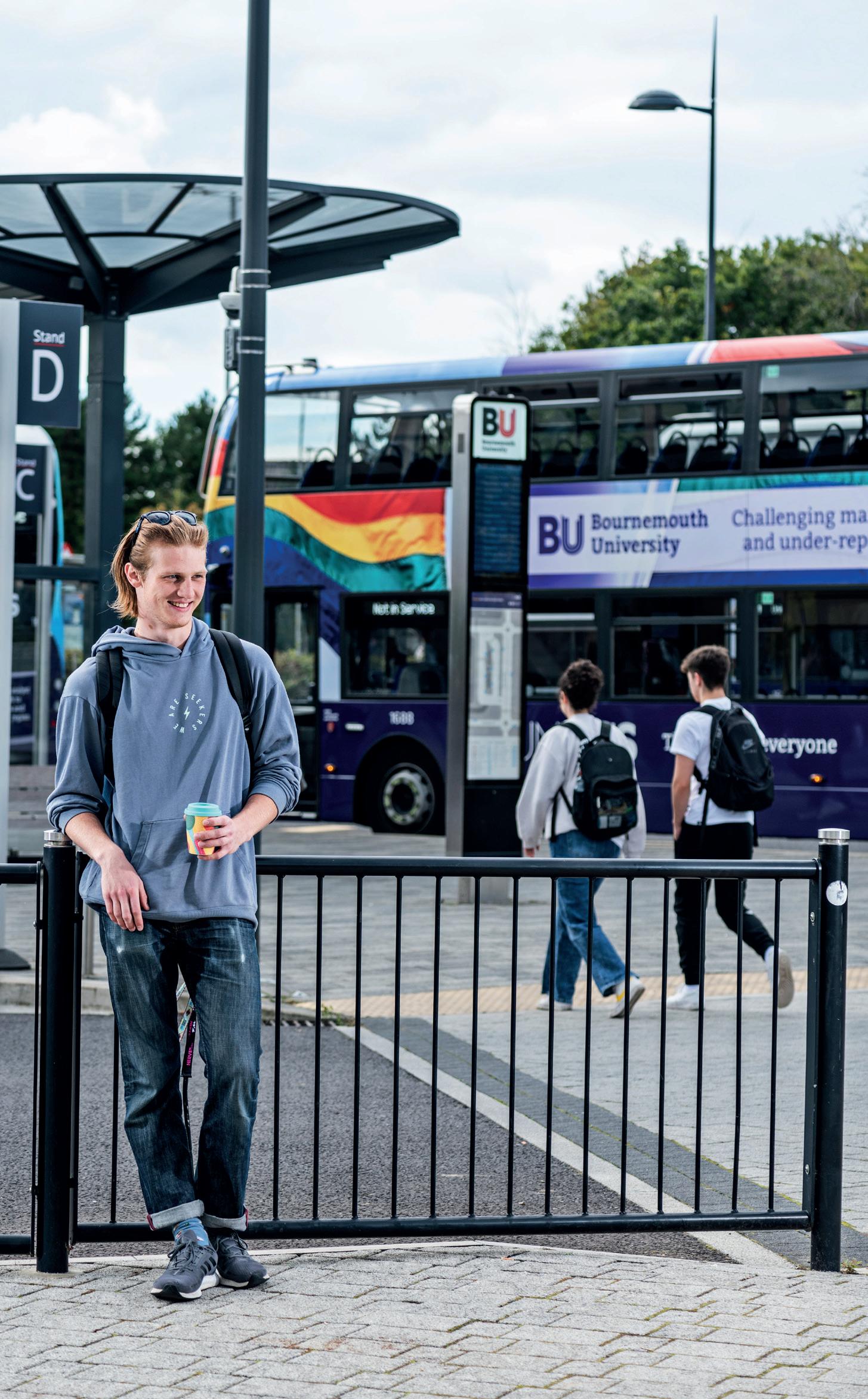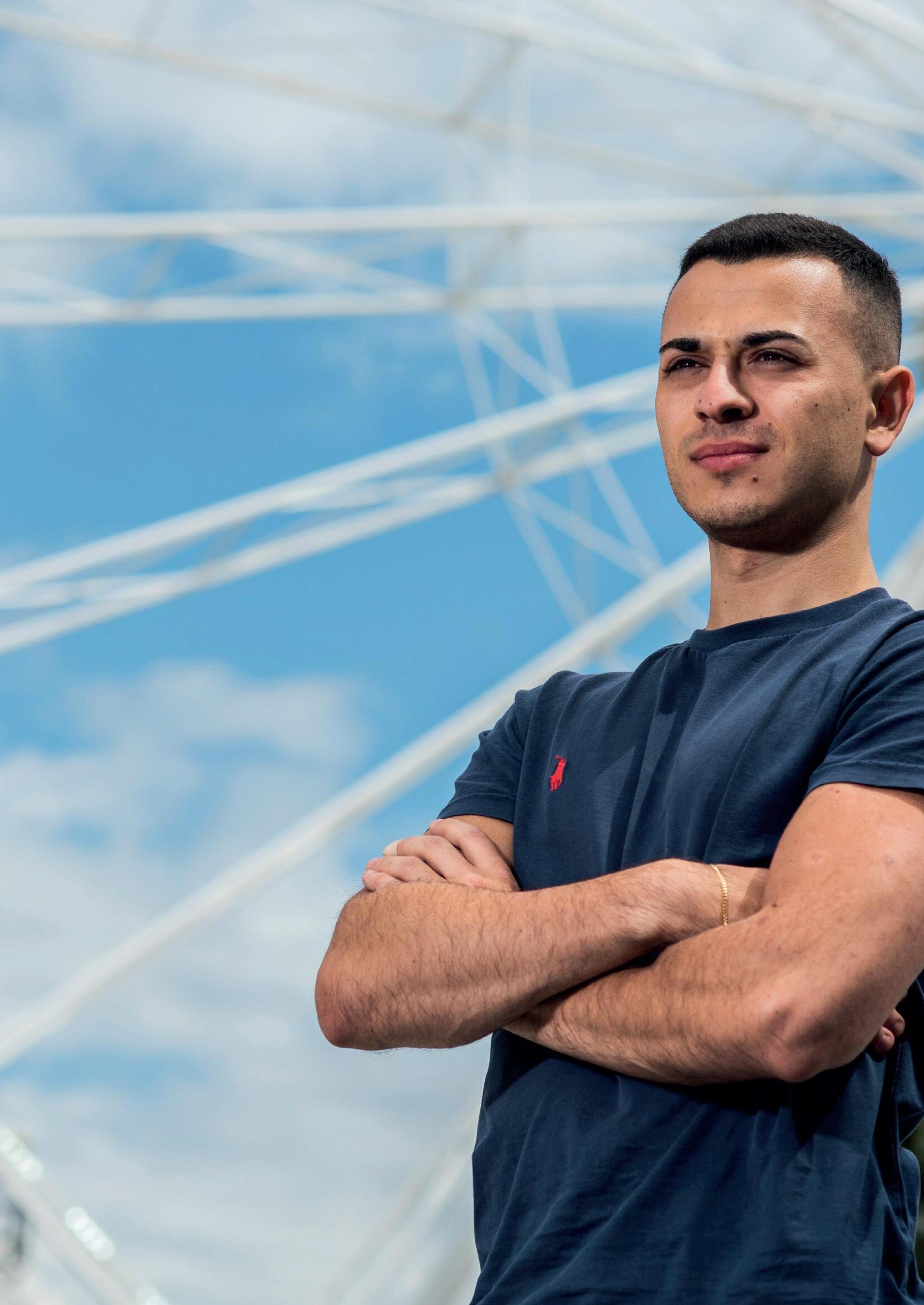


Contents 2

Contents 3 01 Forewords Rt Hon Justine Greening Professor John Vinney 02 The Journey to the Purpose Goals 03 Introduction to Bournemouth University and its approach to purpose 04 Assessment of Bournemouth University in the context of the Purpose Goals 05 Analysis 06 Recommendations Contents
Foreword
Rt Hon Justine Greening, Founder of the Social Mobility Pledge and Former Secretary of State for Education
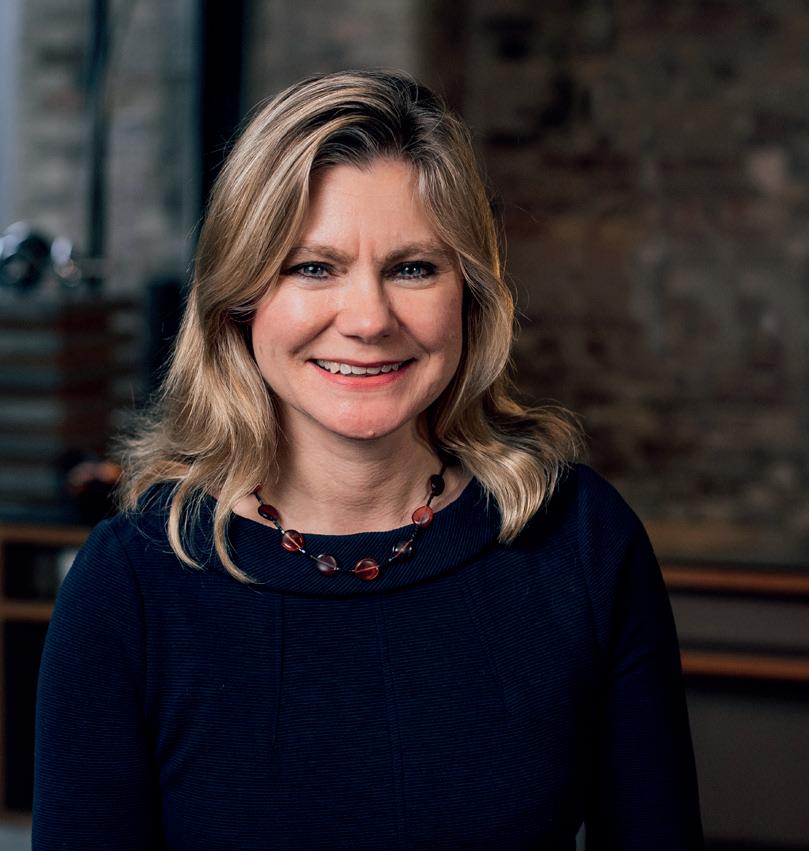
Universities have a leading role to play in driving opportunities post-pandemic, improving access to more and better paid jobs among their graduates and staff.
In the critical push to net-zero, they are also helping to align research and enterprise with the planet’s urgent need – and fill the talent gaps of cleaner industries.
And across all sectors, higher education institutions must provide work-ready graduates in line with current and impending sector trends, at a time when traditional models are in flux.
Purpose means something different to every organisation but among universities a common thread is being able to identify potential which is hidden by disadvantage, and nurture it towards fulfilment.
Increasingly institutions are operating in a landscape in which their performance is measured and recognised in a more nuanced way than in the past. No longer do mere graduate outputs and achievements mark their success or failure. More and more importance is also being put on how far a university can take an individual in life.
Being able to provide a pathway to social mobility for individuals that may not have had the easiest start to life is a crucial component of a purposeful university.
There are many more purposeful traits in addition –including an ability to plug into the needs of the local communities they influence and fostering an
inclusive workplace that enables staff from all backgrounds to thrive.
Bournemouth University has taken a significant step forward in its purposeful journey by committing to the Purpose Goals process.
This report tracks its activities in focus areas identified as vital to closing opportunity gaps in the UK and enabling social mobility.
It shows some shining examples of best practice, such as the university’s Books & Stories programme which closes the reading attainment gap and its work with local health partners on the ageing agenda.
Importantly, it also considers ways in which the university’s positive impact on the wider world could be enhanced further.
As this report demonstrates, Bournemouth is an institution which is showing that being purposeful is integral to organisational performance. I hope it proves an inspiration to others in any sector reading this report.
4 Foreword
Professor John Vinney, Vice-Chancellor of Bournemouth University

UK universities are at the forefront of innovation and research that helps to drive societal change, to engage with the regions they are based and to help make lives.
At Bournemouth University, our purpose is to inspire learning, to advance knowledge and to enrich society – and we believe this starts with our own location, where we live and work. We love our region, its beaches and environmental diversity, we love working with partners and organisations to bring research to life, and we’re a major regional catalyst for growth within the region, through the skills we provide, the contributions we make through research, and our partnerships to help make lives better.
2022 marks our 30th year as a university, along with many other post-’92 institutions, and we have a proven track record of working through research, education and professional practice to drive regional excellence in creative and digital industries, through our partnerships with healthcare providers, and our contributions to preserve the beautiful environment we call home.
Working for the benefit of our region, as well as through our international reach, is in our DNA, connecting our staff and students to engage in projects and work that matters to the community, addressing societal issues.
Our BU2025 strategic plan specifically challenges us to be a leader in supporting the development of the region, and I am delighted that this report helps to showcase the work we have done over many years to benefit the community and the region, as well as recommendations for the future as we continue in our ambition to make Dorset and the surrounding area the best place to work, to study, to live and to enjoy.
I am proud of all in the BU community who have worked to make this possible, and I am proud to lead an organisation that cares about the region we work and live, and look forward to deepening relationships, new and continuing partnerships, and growing skills and knowledge to impact future generations too.
5 Foreword
“Working for the benefit of our region, as well as through our international reach, is in our DNA, connecting our staff and students to engage in projects and work that matters to the community, addressing societal issues.”
Case studies
Improving reading skills and closing the attainment gap
The gap in attainment for disadvantaged pupils has closed in recent years but disadvantaged students remain, on average, up to eight months behind in their schoolwork.
Bournemouth University’s Books & Stories programme supports partner schools across Dorset to help improve ability and confidence in reading and close the attainment gap.

The programme consists of 30-minute guided reading sessions, with interactive activities led by current BU students, to develop reading comprehension.
Books & Stories started in 2014, with selected partner schools asked to identify 20 Year 6 pupils with reading ages over a year lower than their actual age.
The results began to show immediately and in 2019-20, 70 students were assessed to show their progress through the scheme, with 67% improving their reading age by 12 months and 38% improving their reading age by two years or more.
The programme has been highlighted as an area
of best practice by the Office for Students (OfS) in raising attainment at a school level and promoting equal opportunities.
The programme is coordinated by BU’s Schools Liaison and Partnerships team, who work with schools and colleges across the region to align pupils’ expectations with their aspirations and support attainment raising through an extensive programme of outreach activity.
Beth Matthews, Schools Liaison Manager at Bournemouth University said, “It is such a pleasure to see these children fall in love with reading, through a system that works for them, and to see their reading age increase. Reading is a foundational skill for children to learn and we hope to set them up as lifelong learners.”
The scheme continues to grow, with schools in the Weymouth and Portland area of Dorset now adopting the programme too, which is essential for this area which sees significant levels of deprivation (in the top 20% of worst performing authorities). The long-term aspiration is to develop and grow the programme for nationwide delivery.
10 Case studies
Working in partnership to improve regional health outcomes
It is estimated 40% of Dorset’s population will be aged over 60 by 2025. With the number of people aged 65 and over growing faster than all other age groups across the world, this unique demographic means the population of Dorset will mirror the global population of 2050 some 20 years earlier.
Bournemouth University’s partnership with University Hospitals Dorset (UHD) is supporting joint initiatives across research, education and practice to make a real difference to the health of the region.

BU’s Orthopaedic Research Institute (ORI) is embedded in UHD, supporting patient care and helping to prevent and lessen hip pain in patients. This has included work to enhance recovery after surgery, leading to better patient outcomes and reduced length of stay in hospital, as well as a programme of cycling and education to improve hip osteoarthritis, which could lead to a reduction in the need for hip replacements.
As the population ages, the likelihood of joints wearing out and the need for treatments or replacements increases – over 17 million people are expected to be living with osteoarthritis by 2030. The Cycling Against Hip Pain (CHAIN) programme, undertaken by ORI in conjunction with UHD and council leisure services, aims to reduce pain and encourage mobility through a six-week programme of education and static cycling sessions, which would equip participants with the confidence to self-manage their condition.
86% of participants reported improvements in walking and completing daily activities as well as reduced pain, better sleep patterns, being able to walk further, and a reduction in painkiller usageall of which has led to a more active lifestyle.
As local anchor institutions, BU and UHD are also working together to develop talent in local people for local jobs to support the region. The partnership has supported students into placement opportunities and graduate positions, as well as joint staffing appointments across the two organisations. These opportunities are already attracting new talent to the area. Joint research has also explored ways to improve nurse retention, helping to address staffing vacancies and the loss of talent from the NHS.
At BU, the Institute of Medical Imaging and Visualisation (IMIV) is delivering education and professional development programmes to meet the needs of the local community, the NHS and industry, as well as current global medical imaging workforce demands. Facilities including a 3T MRI scanner are facilitating joint research opportunities with NHS trusts, primary care, industry and academia.
The partnership allows both organisations to assess the needs of the region and respond, embedding research in practice and supporting education by giving students the skills they need to thrive, with many continuing to work locally in healthcare after graduating.
Dorset’s ageing population also provides a testbed for policy and best practice creation, through the partnership, that could be scaled nationally to help create solutions and reduce the burden on the NHS.
By working in partnership, BU and UHD are supporting regional health outcomes - helping people to live better, for longer - and putting patient care, the needs of the community, and vital skills at the heart of their activities.
11 Case studies
Assessment of Bournemouth University in the context of the Purpose Goals
Many organisations have strong commitments to traditional Corporate Social Responsibility and the Environmental, Social and Governance (ESG) agenda.
This section of this report will map several of Bournemouth University’s specific initiatives against the Purpose Goals, to track where progress is being made and where efforts could be redirected or better targeted.
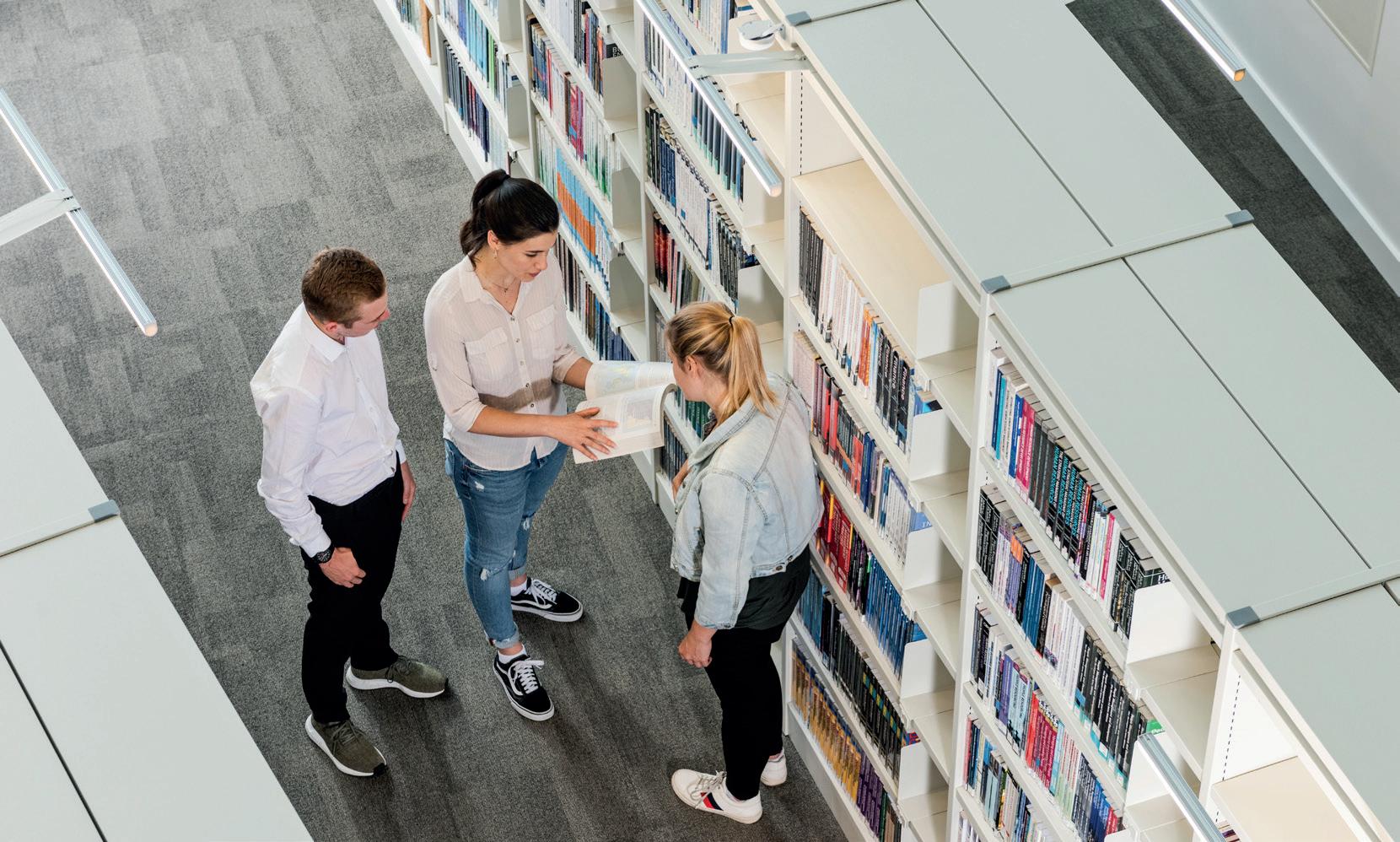
It is important to note that it would be difficult for any individual organisation to work effectively toward every single one of the Purpose Goals. As more organisations adopt the goals, it could be more efficient for individual organisations to focus on particular areas where they can make a real impact, rather than making a superficial impact across many goals.
Strong foundations in Early Years 1
Goal 1: Strong foundations in early years
The university has an indirect impact in this goal area through its on-campus facility, Talbot Woods Nursery and Playschool.
The centre provides a range of activities to nurture and develop children’s skills and help them to reach their full potential.
As part of efforts to increase its impact in this goal area, the university is currently exploring ways of collaborating with the facility on community projects.
12
Activities
Successful school years 2
Goal 2. Successful school years
School outreach
The university’s Schools Liaison and Partnership Team runs an engaging and progressive programme of activity across primary and secondary schools.
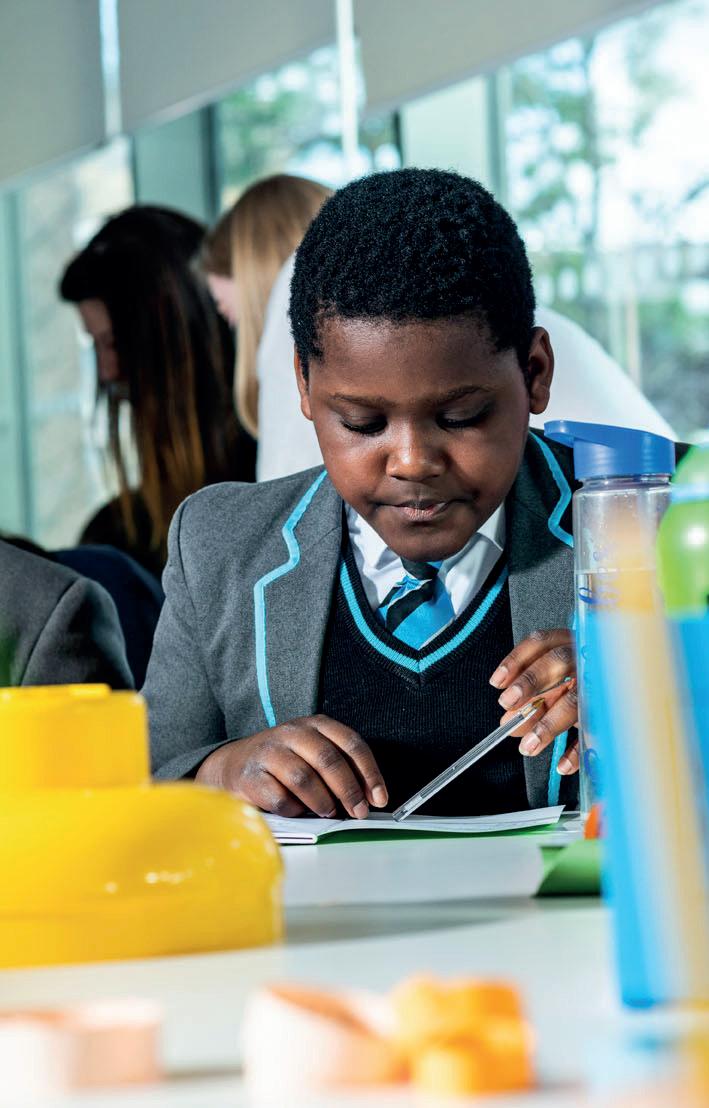
These activities include campus visits, higher education information sessions, interactive subject workshops and intensive programmes aimed at raising attainment including numeracy and literacy.
Much of this outreach activity is targeted toward students in groups under-represented within higher education.
These include young people living in low participation neighbourhoods and students from low socio-economic backgrounds.
Driving social mobility among Black, Asian or minority ethnic children
Senior Lecturer Sid Ghosh is delivering a project aimed at driving social mobility among Black, Asian or minority ethnic children.
It combines quality educational coaching, tutoring and support for primary school children to help them successfully navigate the selection exam for local grammar schools.
Initially around 20 Black, Asian or minority ethnic children from local schools were selected and continue to be supported. Their progress will be monitored through GCSEs, A-Level and university entry.
The project, which may be expanded in future, builds competence and confidence among the children on which it is hoped they can build successful careers and progress in life.
It is data-driven, with activities carefully evaluated to ensure they are having the expected impact.
Research and societal impact
The university also contributes to this goal via research which shapes understanding of how to best enable children to thrive in life.
In partnership with local primary schools and the University of Winchester, Bournemouth University is supporting the Stormbreak project. This aims to incorporate mentally healthy movement and physical activity in the classroom as a way of promoting positive mental health and resilience in children. The programme has been adopted in schools across Dorset and is aiming for national recognition.
The university is also working on an equine-assisted intervention run by charity TheHorseCourse and co-developed with BU. The programme’s guided interaction between horses and participants has produced significant and enduring results working with deeply troubled young people when other interventions have failed, supporting mental health and behavioural improvement.
13 Activities
Positive destinations Post 16+ 3
Goal 3: Positive destinations post-16+
Bournemouth University has a busy programme led by The Schools Liaison and Partnerships Team that reaches sixth forms and colleges. Activities include:
Opportunities to experience what higher education life is like through subject taster days and campus visits. Presentations on key topics including interview skills, student finances and student life.
A fully funded residential summer programme prioritising places for people from disadvantaged backgrounds.
A ‘young researcher’ award which recognises emerging research talent, for pupils completing the Extended Project Qualification (EPQ).
Supporting offer-holders from disadvantaged backgrounds in smoothly transitioning to university under the banner ‘Get ready for university’.
Employer focussed industry insight events for young people and their families, showcasing employment opportunities and pathways in the local area across creative industries, business and healthcare. This project is delivered in collaboration with Dorset Careers Hub and the Dorset Local Enterprise Partnership (LEP), with plans to roll the programme out to Weymouth and Portland.
Activities are continually evaluated to ensure maximum impact on the lives of sixth form and college students, helping to influence more informed choices about university.
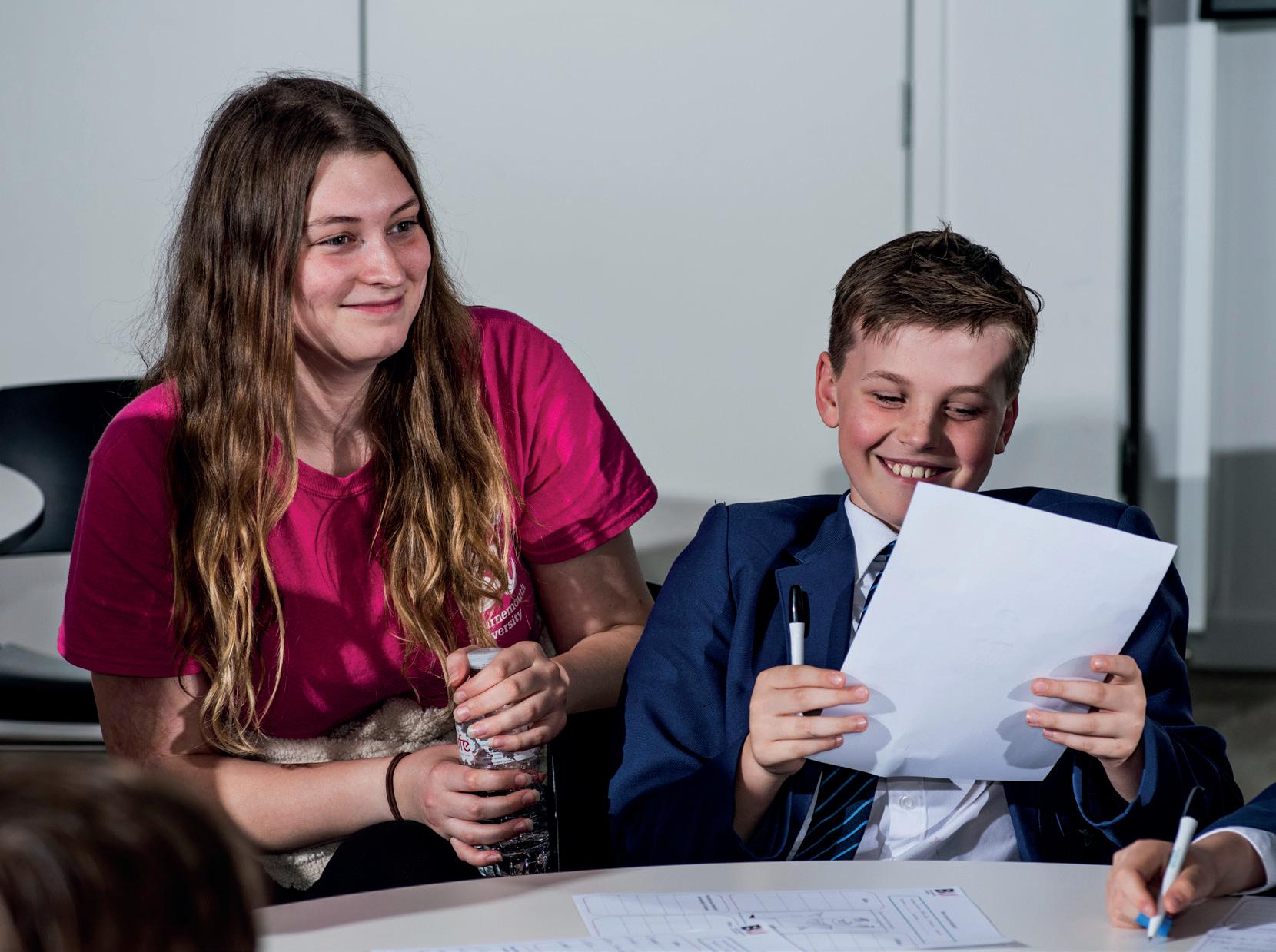
14
Activities
Goal 4: Right advice and experiences
Right advice within schools
Contribution to this goal includes the work of The Schools Liaison and Partnership Team including:
Campus visits: both general HE visits and subject specific activity with opportunities to meet current students and staff
GCSE choices: theatre performance, presentations and workshop delivery to support students in making informed decisions
Presentations and workshop delivery for students, parents and carers, careers leaders and teachers on key themes including how to choose your university and student finance
Enhancing employability skills including supporting mock interviews and delivering CV writing and interview skills workshops within target schools and colleges
Careers Leaders and Teachers Conference: working with the Dorset Careers Hub to deliver an annual conference for careers leaders and teachers designed to support schools to achieve Gatsby Benchmark 7 (Encounters with FE & HE)
Collaborations with industry leaders and experts to inform future pathways via hands-on experiences on campus including the BBC and The Royal Institution.
Placements
Bournemouth University has a strong offer to its undergraduate students, proactively promoting a placement option as a part of a degree. Pre-placement students are supported by named ‘placement coordinators’, who each have specialist sector knowledge.
Their role includes assisting in the placement search, running CV and recruitment workshops and having one-to-one appointments with students to provide advice and guidance.
During the placement period, a named ‘placement development adviser’ (PDA) is made available to each placement student.
Support during placement involves substantive, individual one-to-one meetings to discuss various areas such as in-role learning, career aspirations and strategies; including objective setting and CV writing. Coursework is specifically designed to capture, unpack and facilitate reflection, professional self-awareness and industry insights. Additional workshops are also delivered by the placements team.
In terms of impact, the placement team surveys students each year to enable continual monitoring and ensure that the provision is appropriate, effective and meeting expectations.
Six months after graduation, the average salary of students who have completed a placement is estimated to be eight per cent higher than that of those who have not.
The placements process is data-driven and constantly being evaluated and developed.
Goal 5: Open Recruitment
Bournemouth University’s careers and employability service aims to equip students with the tools and knowledge needed to be work ready.
This support is provided from the first day right up to three years after graduation.
Services provided include recruitment, interviewing and CV writing.
15
Open recruitment
Activities Right advice and experiences 4
5
Goal 6: Fair Career Progression
The university supports fair career progression in several ways including by:
Supporting employees accessing promotions and progression opportunities via drop-in sessions.
Staff development activities including research seminars, writing days and funding development briefings.
Departmental appraisals twice a year, providing an opportunity to discuss personal and career development.
Opportunities for staff to join apprenticeship programmes.
Regular training and development of staff, which is encouraged through appraisal process and the advertising of opportunities.
Goal 8: Good Health and Wellbeing
The university contributes significantly, on a global scale, to helping people live better, for longer, through research, education and practice. In particular, the Dorset region has an ageing demographic profile and acts as a test bed for pioneering research partnerships to advance societal solutions now, and in the future, as the population ages. Solutions tested in Dorset could be scaled nationally and solve future healthcare problems.
Bournemouth University is particularly well placed to innovate and test new policies and interventions that relate to the challenge of ageing populations.
The institution works with local healthcare partners, while also being an international contributor to progressive research on fields such as radiology, nutrition and orthopaedics. It has also influenced the development of MedTech devices and tools.
Furthermore, Dorset’s two hospitals trusts - Dorset Healthcare NHS University Foundation Trust and University Hospitals Dorset NHS Foundation Trust – benefit from university status.
The university also has close links with regional healthcare providers and networks, including Dorset Integrated Care System (ICS), which brings together local authorities, NHS trusts, community groups and charities.
Goal 7: Widening access to savings and credit
The university hosts workshops delivered regularly by pension providers to help staff and students make the necessary steps for a comfortable retirement.
Additional partnerships, including those with charities Dorset Mind and Samaritans, also enable it to enhance its contribution to good health and wellbeing. BU’s Department of Psychology is well placed for responding to initiatives to enrich the local region, with particular emphasis on mental health and addressing wider
16
Fair career progression 6 Activities Widening access to savings & credit 7 Good health and well-being 8
societal impacts within local communities. There are a range of ongoing research initiatives and contacts with local charities, local councils, Dorset Police, hospital trusts, and local businesses.

Another major contributor is the university-led PIER (Public Involvement in Education and Research) Partnership. This unites individuals who have used a wide range of health and social care services, or who are carers for family members or friends.
It provides a diverse range of perspectives of such services acting as a focus group, helping to inform education provided by the university and the practice of the future workforce in health and social care.
Research breakthroughs driven by Bournemouth University have also proven highly impactful in terms of good health and wellbeing.
For example, research into face processing disorders culminated in prosopagnosia being added to the NHS Choices website. This has increased the likelihood of diagnosis. Similarly, paternal mental health is now a standard check after the birth of a child, through the impact of BU’s research.
An interactive nutrition wheel tool to help spot malnutrition in older people in the community has been developed by Bournemouth University researchers in partnership with charities and community stakeholder groups. The tool is now widely used by volunteers, community workers and carers to identify and better manage malnutrition at an early stage.
The university has also worked with organisations including the Chartered Trading Standards Institute and Age UK to better protect vulnerable people from financial scams. Bournemouth University research has informed learning resources which have been distributed nationally to raise awareness of scamming and increase the protection of vulnerable groups.
Experts at the university also helped to develop the Mental Capacity Toolkit to support practitioners in the UK. The toolkit has been accessed by around 14,000 practitioners in the UK and aims to inform professionals working with individuals whose decision-making process is impaired.
Furthermore, a range of tech devices and apps have been created to help people live better, healthier lives and improve medical conditions and patient outcomes.
Staff health and wellbeing
Other contributions to good health and wellbeing include: Active and robust health and wellbeing programmes for staff and students
The recent acquisition of Chapel Gate sports facility and subsequent plan to enhance its impact of sport in the community
Use of awareness days by the university to raise awareness of health issues
Representation of the university on the Pan-Dorset Suicide Prevention Group
Support for staff wellbeing delivered by BU’s HR service
Staff awareness sessions on menopause
The retention of certain health and wellbeing processes introduced during the pandemic. For example, the use of appraisal forms that include comments about wellbeing of self and others.
17
Activities
Goal 9: Extending enterprise
Bournemouth University is a catalyst for growth and enterprise which generates an estimated £1m per day for the regional economy.
It works closely with businesses and related organisations in and around Dorset to help align skills demand and supply, identify and create new opportunities and innovate beyond challenges. Its partners include AFC Bournemouth, Dorset Local Enterprise Partnership (LEP), JP Morgan and Vitality.
The university is one of the largest employers and the largest provider of placements in the region, bringing skills to the local community, and offers CPD courses for professional upskilling. The institution collaborates with government to deliver tangible benefits for the region, including the Help to Grow: Management course for Dorset businesses.
Some highlights of its working in extending enterprise –and thus in contributing to being purposeful in extending enterprise – include:
The university is internationally known for its excellence across research and teaching in tourism and hospitality (currently ranked within the top 20 in the world by the QS rankings); it is one of the most actively engaged institutions in research to boost the tourism industry in the UK and around the world. It was instrumental in the development of an economic modelling system for tourism which has been used by the UK Government to inform decision-making.
Work in the visitor economy, including with organisations such as the National Trust and English Heritage and more to improve visitor experiences. For example, 25 years of BU research at Stonehenge, has enabled a transformed visitor experience at the Wiltshire site, with BU academics featured in the Visitors Centre.
Running entrepreneurship courses specifically aimed at entrepreneurs and facilitating collaboration between academics and SMEs, with a particular focus on womenled enterprises.
Provision of business expertise to Parliament to assist with Brexit and other economic matters.
Supporting local businesses via the provision of consultancy services by students in a range of programmes help find solutions for local businesses.
The IBM challenge programme for UBC (Universities Business Challenge), which offers participating students the opportunity to develop their communication, team working, problem-solving and organisational skills, while learning about the challenges of running a business. Students completing the programme have reported increased confidence and a better ability to deal with uncertainty, complexity and ambiguity.
Research projects which support the entrepreneurial agenda. For example, studies on economic modelling to inform UK airport expansions, and how trust can be restored in the insurance industry. Furthermore, our partnership with the University of Bath, has delivered the Centre for Digital Entertainment, which is transforming the R&D capacity of both organisations in the fast-paced field of entertainment.
Goal 10: Closing the digital divide
BU’s impact in closing the digital divide can be seen both internally – in its comprehensive digital support for students – and externally through its contribution to digital industries.
Contribution to the local digital economy
The university’s Faculty of Media and Communication works extensively to develop the talent pipeline needed by Dorset’s creative industries and to deliver the innovation in the visual effects (VFX) industry required to ensure the UK remains a world leader.
Dorset has one of the fastest growing digital economies in the UK, with thriving marketing, visual effects and media sectors within it.
Hollywood movies and international television programmes have been developed using the university’s talent and the area has a strong graduate retention rate, helping to keep vital skills in the region.
The institution is also involved in advancing assistive technologies via the Assistive and Accessible Technology Policy Lab, which is helping to deliver good policy development in the UK.
18 Activities
Extending enterprise 9
Closing the digital divide 10
The university’s impact can also be seen via its research on digital literacy, which will shape education and approaches in future. The Centre for Excellence in Media Practice (CEMP) is a national pioneer in digital and media literacies.
Its research covers pioneering digital tools. Example projects include the creation of crowdsourced platforms, developing apps to reduce digital addiction and improving digital security.
Harness
Goal 13: Harness the energy transition
The stated vision of the university’s net-zero drive is: “A Bournemouth University community that recognises the need to live in harmony with the natural world to protect the survival and wellbeing of all communities and takes action to enrich society for the benefit of people and planet.”
It aims to reach this vision by:
Leading by example.
Rapidly reducing emissions.
Maximising academic opportunities. Caring for its ecosystems. Focus on community action.
Between 2005 and 2020, the university reduced its CO2 emissions by 45 per cent. It now aims to achieve net zero emissions across all activities of the business by 2030/31.
In realising this goal, it has set out to:
Mobilise the entire university community.
Recognise and reinforce the link between people, nature and the climate.
Recognise that considerable resources will be required to successfully transition to net zero emissions, and a position that works with nature, and committed to meeting this demand.
Mitigating and adapting to the climate and ecological crisis to minimise risk, which is both physical and financial, and transition to a zero-carbon future.
BU researchers are engaged in ultrasound fatigue testing of materials to help guide future material solutions that will reduce the need for wastage and help businesses make environmentally friendly decisions about the materials they use.
& inclusion 14
diversity
The university’s research is a significant factor in its contribution to achieving equality through diversity and inclusion. Through numerous research projects, BU has worked with underrepresented groups to challenge marginalisation and to ensure seldom-heard voices are listened to and focused upon, with insights on under-represented communities shared. Research has explored topics including diverse workforces, migrant workers, and those with disabilities, experiences of Muslim women and the LGBT community. BU’s leading research in assistive technology is creating new technologies to reduce inequalities, making travel more accessible and making our homes smarter, including participation in the national Assistive and Accessible Technology Policy Lab.
The university has an Equality, Diversity and Inclusion Committee (EDIC) which meets every term to discuss the university’s work and policies in these areas and to look for ways to continually improve, both as an employer and a higher education institution.
A significant amount of the outreach activity undertaken by the Schools Liaison and Partnership Team is targeted towards students from underrepresented groups in higher education, including young people living in low participation neighbourhoods and students from low socio-economic backgrounds.
The summer school residentials delivered by The Schools Liaison & Partnerships team are also prioritised to those students from disadvantaged backgrounds or from a group under-represented in higher education.
All activities are carefully evaluated to ensure they are having the expected impact on achieving equality through diversity and inclusion.
19 Activities
Bournemouth University’s research is making substantive contributions on materials, low- to zero-carbon energy, nanocoating, tribology, biomedical and electrochemical engineering, which have wide ranging industrial applications. The research addresses the most challenging engineering and design problems facing the world to translate them into sustainable solutions to address energy demands, sustainability and enhance assistive technology. the energy transition 13
Achieve equality, through
Goal 14: Achieve equality through diversity and inclusion
Analysis
Bournemouth University is an example of an institution that is committed to having a wider purpose in the communities it serves.
As well as the more obvious impact that the university has on its students, it is also making a positive contribution through its partnerships in the region, its research and its role as a large employer.

The university’s contribution to the Purpose Goals starts with its outreach into local primary and secondary schools to raise awareness of the benefits of higher education and support attainment. The South West as a region has a lower level of higher education participation than the rest of the UK, so, crucially, much of this work is targeted towards those from underrepresented groups.
Once at the university, students are given the right advice, experience and support to ensure that they can make the most of their time. Again, students from underrepresented groups, who may not have the same social capital as others, are given extra support in gaining access to placements and other opportunities.
An area of strength for Bournemouth University is its work around the health and wellbeing agendaboth through its partnerships in the region and its commitment to staff health and wellbeing. Its work against this goal is strengthened due to its partnership working with local healthcare providers, this has included developing technology that is helping people to live better, healthier lives.
Another area of expertise is the university’s continued work to promote enterprise within the region. This includes running innovative entrepreneurship courses specifically aimed at entrepreneurs and facilitating collaboration between academics and SMEs, with a particular focus on women-led enterprises.
From its research that shapes understanding of how to best enable children to thrive in life, to its insights on underrepresented communities, Bournemouth University’s research also plays an important role in spreading opportunity. Across the Purpose Goals, Bournemouth University is making a significant impact through its research.
Bournemouth University is a higher education institution which is showing that being purposeful is not only the right thing to do but is integral to organisational performance.
Analysis 20
“ Another area of expertise is the university’s continued work to promote enterprise within the region. This includes running innovative entrepreneurship courses specifically aimed at entrepreneurs and facilitating collaboration between academics and SMEs, with a particular focus on women-led enterprises. ”

Analysis 21
Recommendations
Talent pipeline
1. Enhancing existing outreach offer with schools and colleges
Bournemouth University has a wide range of outreach initiatives that it runs in schools throughout the region. This activity focusses on raising awareness of higher education and its benefits.
Could activity as a whole, or certain initiatives, be more focused around target sectors for the university and particularly where there are skills gaps within the region that the university can take a leading strategic role in filling. Raising aspirations, expectations and awareness of careers within the creative industries or healthcare, for example, at an early age will likely lead to more young people choosing these degrees in the future. The university’s aim is to grow primary school provision, enabling more schools in the conurbation to access intensive attainment raising programmes supporting numeracy and literacy.
Dedicated resource to support growth of ‘The Story Works’ initiative. The charity, supported by BU, seeks to create a safe space for vulnerable children to build confidence, resilience and writing skills through dynamic creative writing and storytelling workshops.
Expanding intensive outreach activity to schools across the Weymouth and Portland opportunity area. While some activity takes place in these schools through partnerships with Dorset Council and Dorset Careers Hub, capacity for more intensive outreach activity for these schools is currently limited.
Grow ‘The Hive’ programme, designed to build confidence and understanding of possible career pathways in business in the local area with a focus on entrepreneurship. The project currently works with young women from disadvantaged groups but could be replicated for multiple target audiences and industry areas.
2. Creating diversity within the creative industries BU’s Schools’ Liaison and Partnership Team have identified priority areas that could be supported with access to further funding. These include:
Continued research and data analysis to allow the schools liaison programme to develop with knowledge of the impact been had in addressing the gaps in accessing, progressing and succeeding in higher education.
Develop a creative strand of the Hive project that targets learners from school years 8-13 to participate in a series of workshops and activities led by academics and industry professionals, including a fully funded residential for students that meet one or more marker of disadvantage.
Dedicated CPD for teachers and staff at target schools and colleges, developed by BU. Upskilling in this area would be extremely powerful – evidence shows it would support attainment and allows for strengthened relationships between schools and the university. Bournemouth has growing digital, tech and creative sectors. One of the issues that these businesses are feeding back to the university is that they are unable to find diverse talent. Increasing outreach into schools (recommendation 1) will raise awareness of these industries across the board. Could Bournemouth University develop its existing work with the creative sector to target children from under-represented groups for their workforce and create a talent pipeline into key regional industries (such as the creative sectors) from school, through university and into practice.
3. Use sustainability expertise to create a pipeline of talent
Sustainability is a key area of expertise for the region, with the university ranked number one in the UK for climate action [THE Impact Rankings 2022]. Academics at the university work to save endangered species, protect coastal and freshwater regions, and understand ecosystems, learning from the past to impact the future.
Due to its location, the university has the perfect opportunity to embed sustainable best practice and help to protect the environment moving forward. With young people being more conscious of their environmental footprint, this is an opportunity for the university to create a pipeline of talent that is leading the way on sustainability and biodiversity. The university is also well placed in a region famed for its tourism and could use its expertise and location to further sustainable tourism and build the future of the UK tourism industry post-Covid and post-Brexit, regenerating coastal communities and tourism destinations.
22 Recommendations
Measurement
4. Tracking socio-economic diversity
Bournemouth University could lead the way in socioeconomic reporting as an anchor institution for the region and the higher education sector beyond by being part of the Equality of Opportunity Coalition. This is a group of organisations that are committed to measuring the socio-economic background of its employees using the four questions identified by the Social Mobility Commission (SMC).
The Coalition includes universities, businesses, local authorities and NHS organisations who will share best practice and challenges being faced when working through the process. Bournemouth University could then take an active role in encouraging others, especially major employers, within the region to track socioeconomic diversity. Over time this will allow the university and organisations within the region to collectively identify sectors and job roles that are not diverse and put in place initiatives to tackle a lack of progression.
This piece of work could also feed into Bournemouth University’s research agenda. Undertaking the socioeconomic tracking through the university and other major employers could create a significant data which BU’s research capacity could provide unique insight into, including how open regional opportunities are to local residents, and to what extent strategic sectors such as healthcare, the creative industries, financial services and tourism are working as engines of social mobility.
This can inform local work on levelling up and also providing a more detailed evidence base for bids for national funding
The power of partnerships
5. More joined up thinking with partnerships
Bournemouth University has strong links with local partners, including the provision of placements across various sectors. However, long term thinking is needed to ensure that the university is supplying the right skills for the region and that there are enough placements for students to access. Recent evidence suggests that there are not enough placement opportunities for Bournemouth University students in certain sectors, such as healthcare.
Bournemouth University could play a leading role in shaping the long-term skills agenda within the region, alongside driving improved measurement of socioeconomic diversity. By identifying the collective strengths of the region and growth sectors, the university could ensure that it is providing the numbers and quality of graduates to fill these opportunities in the future in a range of specialist sectors in the region, from healthcare and creative industries to tourism and engineering.
6. Build on relationship with BCP Council
The relationship that Bournemouth University has with Bournemouth, Christchurch and Poole Council is absolutely crucial in spreading opportunity throughout the region. This relationship should continue to be at the forefront of the region’s levelling up efforts.
This partnership, along with other local stakeholders, must ensure the region has a strong narrative and highlights its strength when presenting itself to a more national and global audience.
Health specialism
7. Lead the way in healthcare innovation
Dorset has one of the oldest populations in the UK. While this brings with it challenges, it also gives the region an opportunity to be a test bed for healthcare innovation. Bournemouth University has a very close relationship with local NHS organisations, with both Hospital Trusts in Dorset having university status due to their relationship with BU. Putting research and innovation into practice is a key part of these relationships.
As well as this, there are some great examples of work with local SMEs around healthcare innovation especially relating to digital solutions. This specialism is growing, which in turn is leading to more graduate opportunities.
Bournemouth University should ensure that it is sharing best practice around this innovation and promoting the work that it is doing on a national stage. One platform to do this is through the Purpose Health Coalition - the coalition is made up of a range of health organisations throughout the UK that are committed to spreading opportunities. This could be a good group of organisations to share best practice with and to identify new ideas and collaborations.
23 Recommendations









